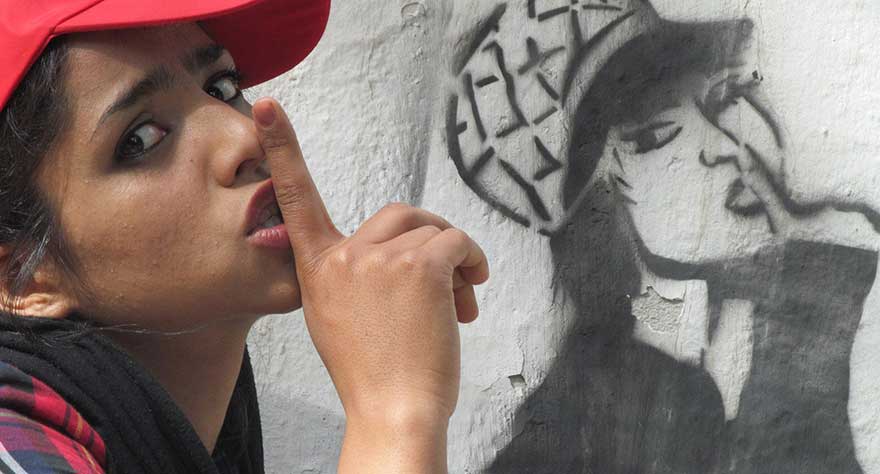Sonita (Hot Docs Review)

When Sonita premiered last year at Amsterdam’s documentary film festival IDFA, it walked away with the audience award, a win that isn’t too surprising considering the film’s story. Director Rokhsareh Ghaem Maghami follows Sonita, an 18-year-old Afghan immigrant living with her sister and niece in Iran. Sonita is a restless creative, who aspires to become a rapper despite the personal, cultural, and political hurdles in her way. And perhaps the biggest hurdle comes from Sonita’s own family, who tell her she needs to come back home so they can force her into an arranged marriage. The reason for the marriage is purely financial: they’ll be selling her off to another family, and by doing so will have enough money to pay for the wedding of Sonita’s brother.
Sonita plays out as a conventional success story, and Maghami’s commitment to this structure eventually holds the film back from exploring issues beyond Sonita’s own story. It’s an issue that comes to a head around the midway point when Sonita is days away from being taken back to Afghanistan. After Sonita’s mother says she’ll postpone the wedding if they get some money, Maghami considers paying the family off herself, a breach of ethics that even her own crew tells her to avoid doing. Maghami’s transparency about her own involvement into the story, along with her selfish intentions (at one point she says that if Sonita goes to Afghanistan her movie will be over), adds a layer of complexity that winds up highlighting her film’s shortcomings.
By paying off Sonita’s family to let her stay in Iran, Maghami exposes her desire to mold the film in a way that fits the success story narrative. And while Maghami’s openness about becoming a direct player in her film is commendable, it’s not a topic she dwells on too much; the debate over her actions gets swept under the rug not long after it’s brought up, and the focus switches over to Sonita making a music video for her first proper single. It’s not the manipulation itself that’s bothersome (documentaries always manipulate in some form or another, and the expectation of objectivity is an archaic one), it’s that Maghami does it to help her film follow a smooth, accessible narrative arc.
Still, Maghami has found a compelling presence in Sonita, and her film has a feel-good quality that’s undeniable. But it’s hard to remove the feeling that, because of her motivations, Maghami is less of an observer and more of a puppet master.
